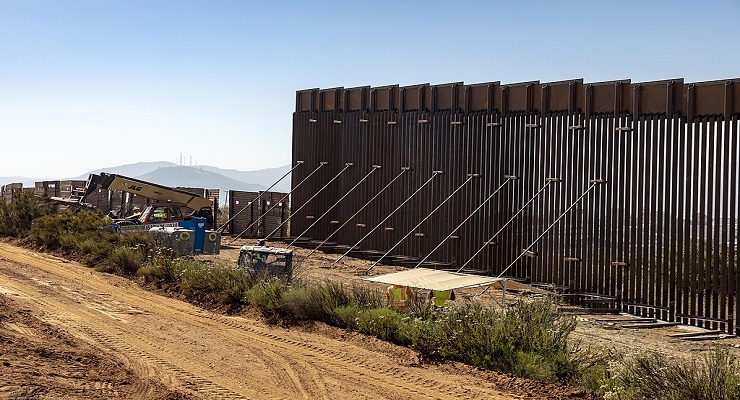
US President Donald Trump is so keen on building a wall to the south. Trump went as far as declaring a National Emergency about it, issuing Proclamation 9844 on February 15, 2019, citing the National Emergencies Act. In this momentum, Trump announced the diversion of funds, totaling up to $3.6billion, that had been appropriated to the U.S. Department of Defense for military construction to the wall effort.
Following proclamation 9844, lawsuits immediately followed. One such lawsuit was “brought by El Paso County, Texas, and Border Network for Human Rights, [and sought] an injunction to block Trump’s national emergency declaration. It argues that Trump overstepped his authority when he issued the declaration to gain access to additional funds for his border wall, despite receiving $1.375 billion from Congress.”
Then today, “a federal judge in Texas, ruled… that President Donald Trump’s national emergency declaration to build a border wall is unlawful and appears poised to block the use of those funds.” According to an article in The Hill by Harper Neidig, “Judge David Briones of the U.S. District Court for the Western District of Texas said in his opinion that the plan would be blocked after getting input from both sides in a lawsuit for the scope of an injunction.”
This is not the first time a federal judge has blocked Trump’s border wall initiative. In May 2019, San Francisco “U.S. District Judge Haywood Gilliam Jr.’s order…[prevented] work from beginning on two of the highest-priority, Pentagon-funded wall projects — one spanning 46 miles (74 kilometers) in New Mexico and another covering 5 miles (8 kilometers) in Yuma, Arizona.”
Trump pushed back with an appeal tagging the Judge “another activist Obama appointed judge“. Gilliam was nominated by President Obama and Briones by President Clinton, both Presidents are Democrats.
Following Gilliam’s order, a judge on the U.S. District Court for the District of Columbia, Trevor McFadden, opined that “a seat in Congress comes with many prerogatives, but legal standing to superintend the execution of laws is not among them,” thereby disagreeing with Gilliam’s conclusions.
Then “on June 28, 2019, Judge Gilliam granted a permanent injunction.” Following this, however, the United States Supreme Court, in a 5-to-4 ruling, on July 26, 2019, in the case of Trump v. Sierra Club, No. 19A60, overturned what was an appellate decision refusing to stay Judge Gilliam’s May 23, 2019 injunction. The Supreme Court ruling stated that the Trump administration could spend the money while litigation over the matter proceeds.
Leave a Reply